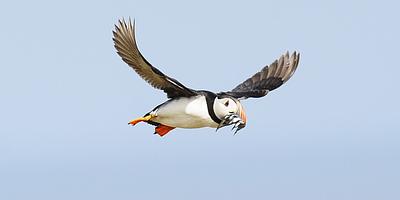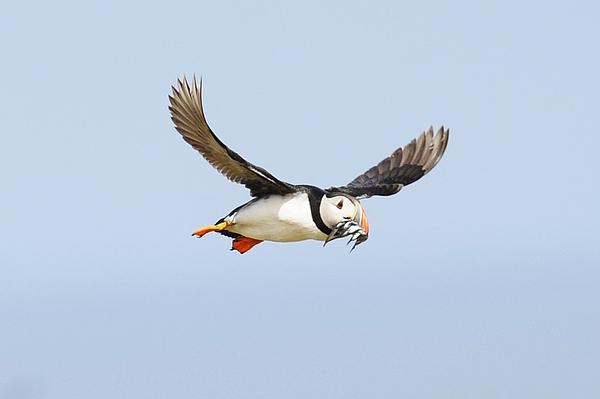
Unsustainable Fishing
Commercial fishing has damaged our marine environment in a range of different ways. Overfishing is when more fish stock is removed from the marine environment than can be naturally replenished.
Over the years overfishing led to a decline of fish stock and even the collapse of certain species, such as Atlantic cod, from the west coast of Scotland. Sandeels, an important part of the marine food web, being the prey of many seabirds, cetaceans and some commercial fish, were targeted by industrial (Danish) fisheries in the North Sea for their oil and use as an animal feed and a fertiliser. This led to declines in seabird numbers. Certain forms of fishing gear, such as scallop dredgers, can also cause harm to our marine habitats and wildlife if they scour across sensitive habitats and bottom-trawling for prawns can both damage marine carbon stores and lead to wasteful by-catch and discard of young fish.
Fisheries management is undertaken at international, national and regional levels. The approach is based on assessments of the number of fish harvested, spawning levels and the number of juveniles being recruited back into the seas. Fisheries management uses spatial approaches, quotas on the amount of fish stock that can be taken, technical innovations and restrictive measures on fishing activities. The International Council for the Exploration of the Sea (ICES) recommended a cod quota reduction of 61% in 2019 to help stock levels to recover, Atlantic cod in the North Sea and West of Scotland do still remain at seriously depleted levels. Sandeel fisheries, off the north east coast of Scotland were closed in 2000 to help protect important seabird colonies. Sandeels are also protected through the Marine Protected Areas network.
When buying fish it is important to think about where it has come from and how it has been caught. Eco-labelling schemes, such as the Marine Stewardship Council, help to promote sustainable fisheries and fish consumption. Open seas are also gathering the evidence for, and promoting, more sustainable approaches to having sustainable shellfish and fish supplies. You can find more information on which fish are responsible to buy through the Good Fish Guide.

